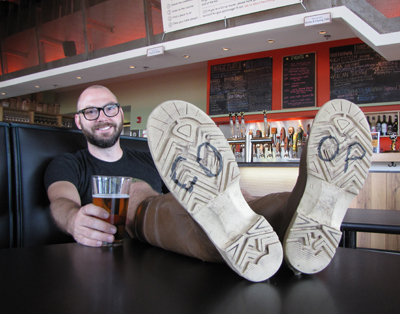If you ask David Flynn what prompted him to buy a membership share in Seattle’s Flying Bike Cooperative Brewery last year, he’ll give you an honest answer. “I have no idea.”

Like many fledgling breweries, Jeff Young and the group at Black Star Co-op are seeking out non-traditional ways of running a brewery—and a business.
It was a purely emotional decision, he says, driven by a love of beer, brewing and community—three things in one package that struck the right chord. “I heard they were putting Flying Bike together and just had a gut feeling that it was something I needed to be part of,” says Flynn, a tech recruiting professional.
In retrospect, Flynn can list dozens of reasons why it was a brilliant idea to get involved, but at the time a gut feeling was all he needed to invest $150 in a lifetime membership in the cooperatively owned brewery, which has, as of late May, 515 members and is growing steadily. The brewery itself doesn’t exist yet, but the cooperative is active, sponsoring events and holding homebrewing competitions for members, of which the winning recipes are brewed under partnerships with other area breweries. “Building a business that is owned and managed by the community it serves just strikes a chord with me,” he says. “Oh, and that business is a brewery? Well that is just icing on the cake.”
Flynn is not alone. Around the country, startup breweries are adopting nontraditional business models and tapping their communities for the funds and sweat equity it takes to get a brewery off the ground. Cooperative breweries. Brewer co-ops. Community-supported breweries based on the CSA (community-supported agriculture) model pioneered by local farms. Crowd-funded breweries. They’re all on the map now, and it’s the engaged communities and individuals like Flynn who are the driving force behind a new generation of breweries. The alternative business models and community support are also allowing a new cadre of entrepreneurial and creative brewers to enter the profession who otherwise may never have been able to make that leap.
The Rising Tide
While small breweries have always needed to be creative to stay viable, the increase in alternative business models and creative funding methods in the craft brewing industry are due to the success that craft brewers experienced in the past decade, says Julia Herz, craft beer program director at the Brewers Association. “The small breweries of today are now in a much different position than they were in the 1970s, 1980s and 1990s, because it seems like the financing is much more open and available because of the success of the overall segment of craft brewers,” she says.









